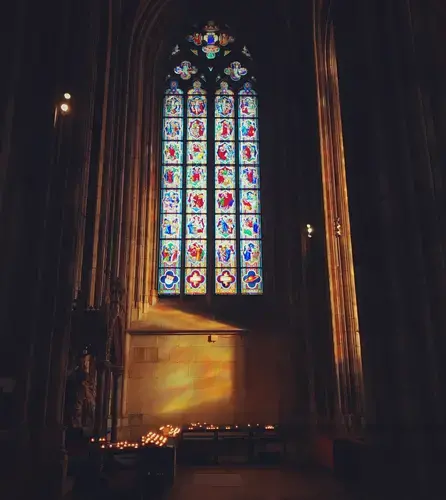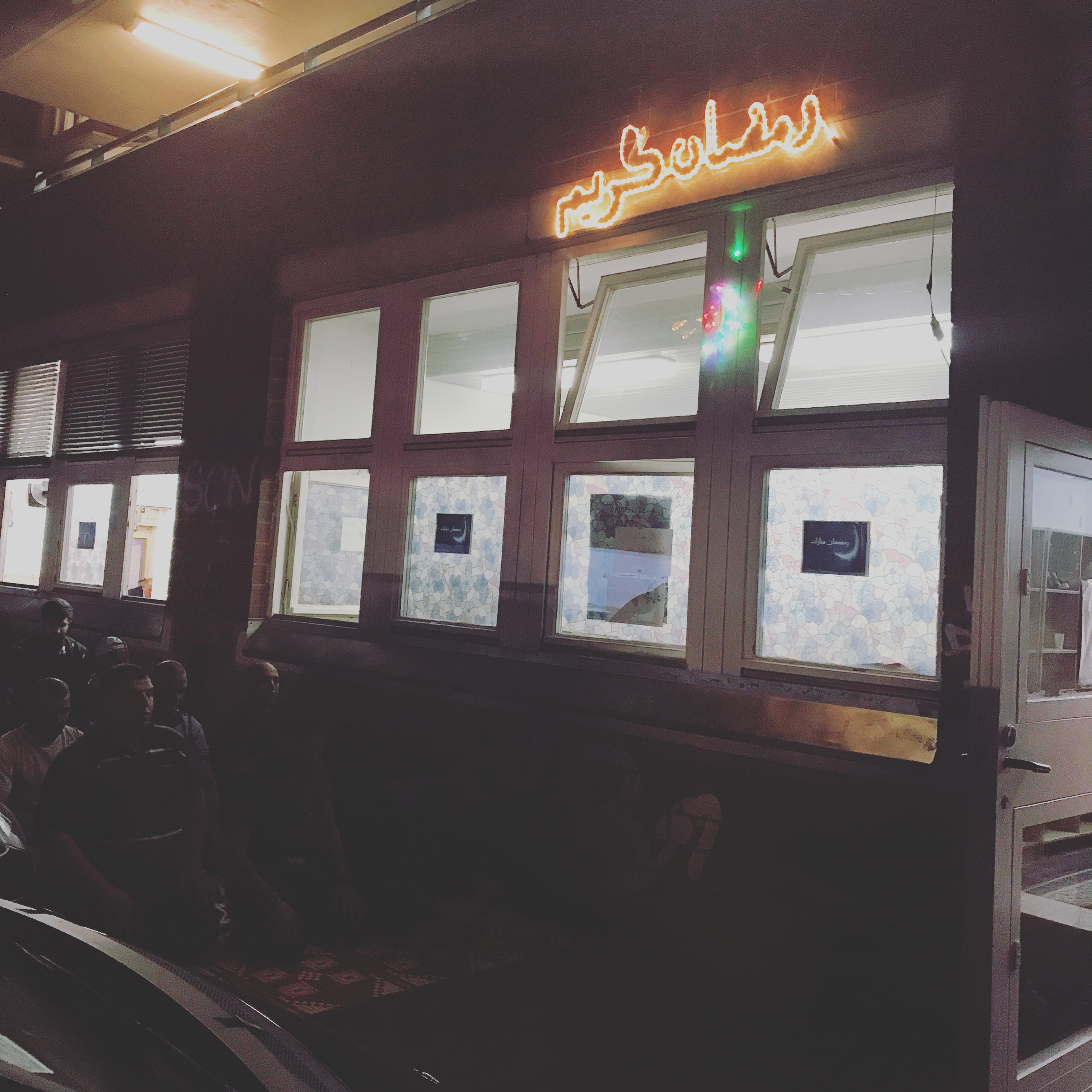
Turkish and German flags decorate a huge iftar held every night by the Turkish-Islamic Union for Religious Affairs (DITIB), the biggest sponsor and builder of mosques in Germany and a controversial organization for its links with the Turkish government. Turks are the biggest Muslim community in Germany, and DITIB became especially controversial in the recent Turkish referendum for blatantly fanning pro-Erdogan flames in the diaspora community. Tonight's iftar is a mix of Turks, Arabs, Persians, and other Muslims, though, and DITIB mosques are also frequently attended by worshippers who have nothing to do with Turkish politics.

It's true that many Syrian newcomers don't go to mosque, J. tells me, but that doesn't mean they've lost touch with their faith. Maybe they weren't big mosque-goers in the first place. Maybe they find the Friday messages here irrelevant and overly conservative. Maybe they're busy with language classes, work, and school. The thing that turns him off religion, J. says, is when you walk into a mosque and they ask you to write your name so they can "help you" as a refugee. "You feel immediately like you're just a number. Then they try to convert you, to make sure you're part of their sect or confession or religion. You're a project. You're not a person." The churches in Cologne haven't treated him that way, J. says. "They don't ask me anything, if I'm Muslim or Christian or atheist. I want to go to mosque like I go to a cafe—like a normal person, anonymous, with no one asking where I'm from or what I am. That's how I want to talk about Syrians too—not Syrians as Muslims, Syrians as refugees, but Syrians as Syrians. Syrians as people."









